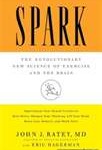 Depression sufferers are often told to embrace what I call the three “G”’ Trifecta: Get therapy, Get on antidepressants and Get some exercise.
Depression sufferers are often told to embrace what I call the three “G”’ Trifecta: Get therapy, Get on antidepressants and Get some exercise.
Each of these tactics has empirical support. So there’s a lot to recommend about them. But as I will discuss later, lots of people have a hard time embracing these approaches or sticking with them. First, let’s take a peek at what’s good and promising about these three treatment routes.
Why these approaches are Effective
-Therapy
Many studies show that ‘talk therapy” helps folks with depression. In particular, cognitive behavioral therapy; a form of counseling in which a psychologist compassionately confronts a depressive’s pessimistic thinking and tries to teach him or her more optimistic an productive ways of thinking about their. Research has shown that there’s a powerful connection between pessimism and depression: the more negative your thoughts, the more likely you are to get sucked down into the well of depression. Other studies show that lawyers are much more pessimistic than the general population. As such, CBT is a very good treatment option for many in the legal profession.
-Medication
Antidepressant medications are often an effective way to treat depression for lots of people. It seems to alleviate the brutal physical symptoms – – loss of appetite, inability to sleep and chronic fatigue – – so that one can benefit from therapy. It’s tough to get much insight from therapy when you’re feeling so crappy.
However, recent research has discovered that it often takes two or three attempts before the right medication is found that will relieve a person’s particular depression.
-Exercise
 Sweating it out has been proven to lift not only one’s general mood, but alleviate depression. Probably the best book I’ve read on the topic is Spark by Harvard physician, John Ratey, M.D. who writes:
Sweating it out has been proven to lift not only one’s general mood, but alleviate depression. Probably the best book I’ve read on the topic is Spark by Harvard physician, John Ratey, M.D. who writes:
“Antidepressants are curious because we think we’re changing brain chemistry when we take them. The science shows us that exercise does the same thing. By exercising, we’re improving the brain’s plasticity. And while it’s hard to get depressed people to get up and move because, well, they’re depressed, you have to sell them on the value of it. Once they get it, they go with it.”
Why People Don’t Do These Things, or Don’t Stick With Them
If these remedies are so effective for so many, why don’t more people who struggle with depression do them, do them more often or stick with them?
– I Don’t Want to Talk About It.
There are lots of reasons why educated and intelligent people don’t go to therapy. Here are a few of them:
People (lots of them men) don’t go because they just don’t want to talk about what ails them. Culturally, men are often not given permission to be vulnerable and emotive. There’s a limited range of feelings that the culture says are okay for men to vent: anger, irritability and humor. –
Sufferers sometimes can’t find the right therapist and give up.
Those around them do not believe in therapy. I know a lawyer with depression whose wife thinks therapy is a bunch of hand-holding baloney and a rip-off at $125 per hour (Buffalo rates, mind you). As such, he feels discouraged, doesn’t want to hear his wife complain about the cost and doesn’t go.
People are just too fearful of what the consequences would be if they admitted they had depression: “Will I lose my job?” As such, they often deny to themselves or others that something is wrong. – Procrastination: “Maybe it will go away”.
Shame: people feel they will be labeled “defective”, “weak” or “mentally ill.”
Or, for many, they just don’t know any better. The misery they endure is their “normal”. They can’t see how their maladaptive, pessimistic thoughts about life could be anything other than reality – – “That’s just the way life is.” They may even feel bitter when they see others having fun or being happy. They feel cheated. Why can’t I have more happiness in my life? They may feel that happiness is something doled out by the unseen hand of God or lady luck. However it is dished out, they’ve feel they’ve been given a pittance. Not surprisingly, they have no confidence that they have the capacity to create happiness within themselves. “No”, they think when they imagine to themselves that they have good things to look forward to, “That’s not how my life seems to turn out’. This disempowered state is a vicious circle that can only lead to more depression.
-Antidepressants: The Flip of the Coin?
 There’s a billion dollar debate going on whether antidepressants work or not. On one side of the aisle are the folks in lab coats – the bespectacled researchers who look at brain tissue through microscopes; pharmaceutical executives in blue suits who smoke big-ass cigars; and the psychiatrists – the high priests of all that ails the depressed mind – – who advocate taking medication to treat clinical depression.
There’s a billion dollar debate going on whether antidepressants work or not. On one side of the aisle are the folks in lab coats – the bespectacled researchers who look at brain tissue through microscopes; pharmaceutical executives in blue suits who smoke big-ass cigars; and the psychiatrists – the high priests of all that ails the depressed mind – – who advocate taking medication to treat clinical depression.
On the other side are patients who swear that the meds did nothing to help their depression and just screwed them up and made them feel like zombies. On the other are holistic practitioners who believe depression isn’t caused by a chemical imbalance in the brain, but by lack of proper nutrition, diet and balance (check out Dr. Andrew Weil) and my psychiatrists who believe that medications, while useful, are over-prescribed.
There currently are no tests, other than trial-and-error, to determine what type or types of medication will prove effective for a particular person. It’s really trial or error. Our family owns a big fat rodent. Did I say he was really fat? Anyway, he is black and white and lives in a large cage in a back room of our house. The colors make him look like a magician in a tuxedo. Hence, his majestic name – – Houdini. I felt like Houdini when my psychiatrist tried different medications on me in a quest to get the right one – a lab animal in which he tried this and then that. Some were real duds; some outright blunders. But I stuck with it. And I’m glad I did because the “right meds” were eventually found for me.
People won’t take medication because of the stigma attached to it. Or, they give up on it before the right medication, dosage or combination is found. Even when the right one is found, folks often stop talking it because of the side effects. I know depressed lawyers who would rather drink or drug rather than take antidepressants.
-Why We Won’t Get Moving
People find it hard to exercise because depression screws up their ability to sleep leaving them unmotivated and just too tired to get to the gym. Years ago, when I first was diagnosed with depression, I recall being bone-tired at the end of a work day and falling asleep a 9 p.m., sleeping on and off throughout the night, getting up at 3 or 4 a.m., shaving, getting dressed and driving to an all-night coffee shop to slurp coffee, get ready for work and wonder “Just what the hell is wrong with me?” But I didn’t have any answers back then. In retrospect, truthfully, the only thing that helped me survive it was to keep walking.
Three Quick Things to get you on the Right Track
1. If you’ve never been to a competent psychiatrist, remind yourself that you can just go for a consultation and hear what they have to say. Whatever their recommendation, you don’t have to agree with it or follow it. But why not get an opinion from someone who has treated hundreds of people with depression and could tell you whether or not you have it and what your options are? You can also get a second opinion. There are “Depression Centers” around the country where you can go for such a consultation and then return to your treating psychiatrist who can prescribe the recommended medication and monitor you. Bring a friend or family member to the appointment. Sometimes, when we’re depressed, we might not truly hear when the psychiatrist has to say. What does your loved one or friend think the doctor said?
2. If you don’t want to go to a therapist, you really have to ask yourself why not. I usually recommend that people call friends to ask for recommendations for a couple of therapists. Go visit a few for a 1 hour consultation to see if you click with that person. Remember, if you give into your depression, you will tend to isolate yourself and “suck it up.” What you really need to do is talk to a therapist who has treated hundreds of folks with depression who can give you some ideas about whether you can benefit from therapy. A good friend can listen and give you their love and compassion. But, they can’t do what a good therapist can do.
3. Make it easier to exercise. Here are three quick ideas. First, always keep your gym bag in your car – EVERY DAY. I’ve found that I’m much more likely to exercise at the gym, if only for 20 minutes, if it’s in the car. Second, don’t shave or shower when you get out of bed. Get dressed like you normally do for work and go get a coffee if you like. I find that I have to work out because I now HAVE TO GO to the gym if I want to get a shower and shave – it’s too late to go home now!








